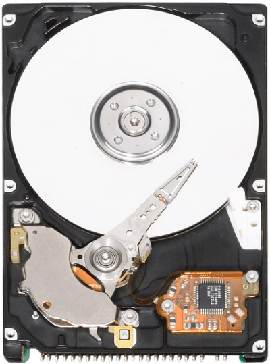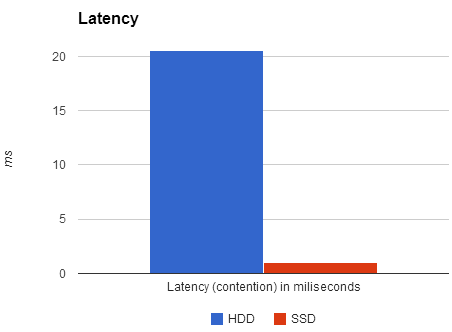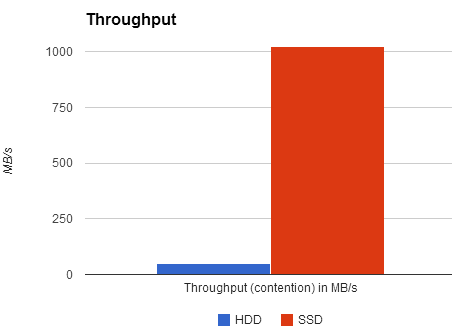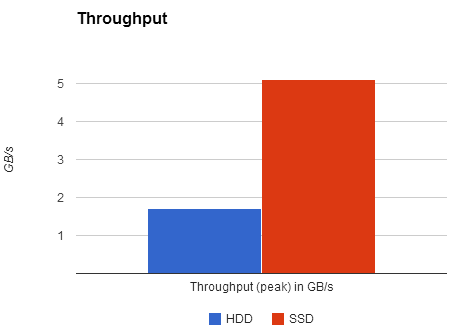When a website is requested, the server hosting that site needs to read data from a hard drive quickly. The new era of SSD or Solid State Drives are faster at retrieving data and can give your website an awesome speed boost! Learn more about SSD Hosting.
In this guide I’ll go over the solid state hard drive technology, and how it can help speed up your website!
We are now offering SSDs on our Business Shared Hosting and VPS hosting accounts to help make your website faster than ever!
Speed advantage of a SSD hard drive
Before the technical stuff, just take a quick look at these results we’ve had from testing SSDs on our servers.
A SSD can be about 20 times faster than a normal HDD when it comes to latency when a server is busy with I/O requests.
When a server is busy with I/O requests, a standard HDD might only be able to push through about 5% as much data as a SSD.
When a server is not busy with I/O requests, a standard HDD can still only typically push through about 35% as much data as a SSD.
Servers without SSD
For years servers have used the standard HDD or Hard Disk Drives for storage. These rely on physical spinning platters or disks with moving mechanical parts.
The capacity and efficiency of standard hard drives has risen over the years. But they are still limited by the physical constraints of the technology.
Data is not stored sequentially on a hard drive when it is written. So the physical magnetic heads of a HDD need to seek back and forth over the platters to gather all your data, which can slow things down.
A website that uses a large database or performs heavy I/O operations, will see the largest improvements when using a SSD instead. As your hard drive will be the bottleneck that the server is waiting on before serving your web page to a visitor.

Servers with SSD
With no physical moving parts to slow it down, a server with a SSD can read data much faster than a standard HDD.
A SSD can sometimes be thought of as a very large thumb drive. They are more resistant to shocks, run quietly, have lower access times, and less latency than a HDD.
Below are some notable advantages a SSD has over a HDD:
| Improved performance | Faster read/write speeds allow websites to load faster, especially the random read/write operations you typically find in a server environment. |
|---|---|
| Improved uptime | With a SSD a server can handle more overall disk read/write requests before becoming unstable. So even during peak times of usage the backed up I/O requests can be served. |
| Lower power needs | Because a SSD doesn’t have moving parts in it, having them run in a server 24x7x365 can save a lot of power compared to a standard HDD. |




Comments
It looks like this article doesn't have any comments yet - you can be the first. If you have any comments or questions, start the conversation!